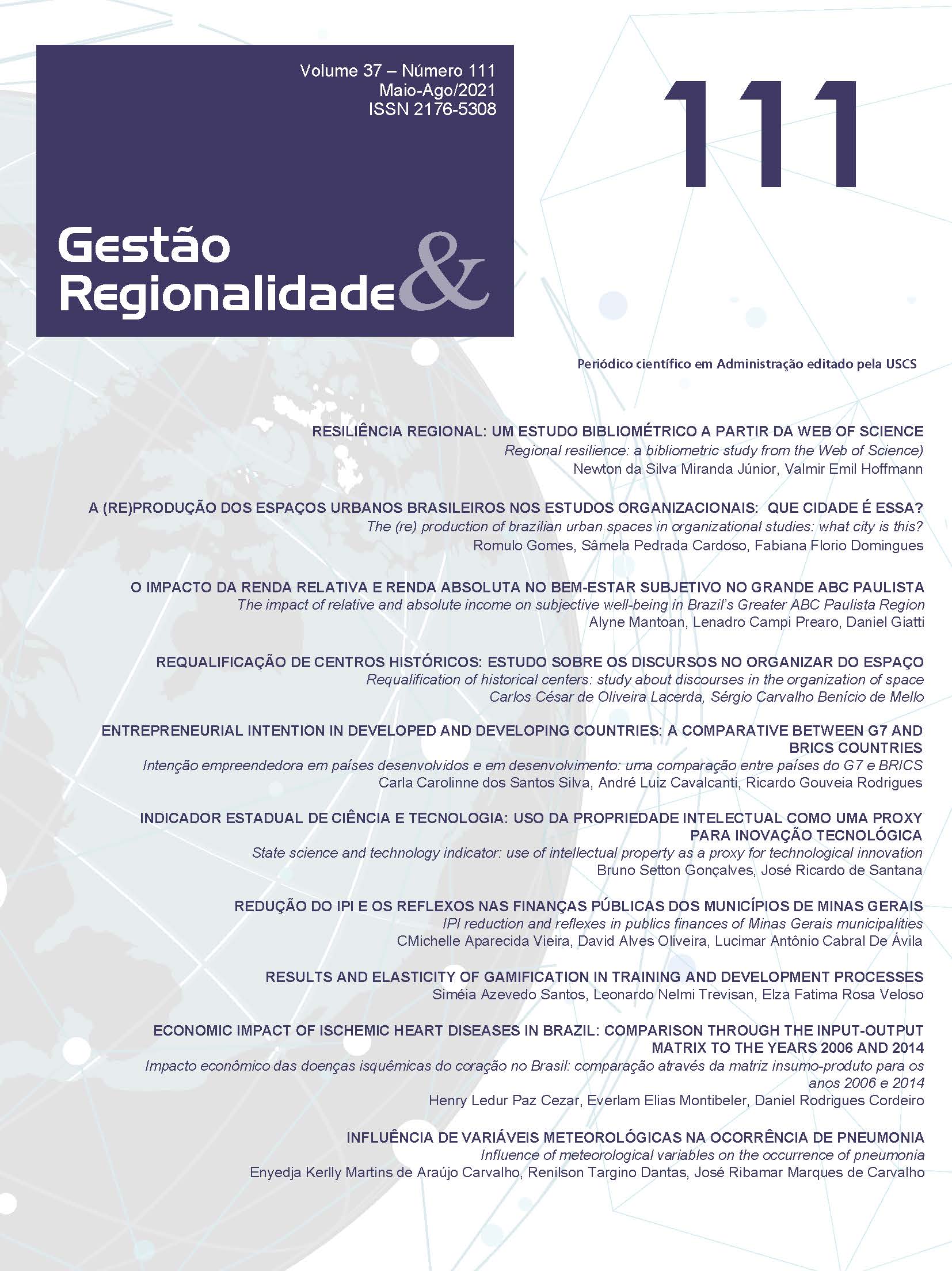Economic impact of ischemic heart diseases in Brazil: comparison through the input-output matrix to the years 2006 and 2014
DOI:
https://doi.org/10.13037/gr.vol37n111.6389Palavras-chave:
IHD, GPD, DALY, LeontiefResumo
The purpose of the article was to measure the impacts caused by Ischemic Heart Diseases (IHD) on Brazilian GDP in 2006 and 2014. The effects of IHD were assessed by applying shocks applied to 56 sectors, in current values of the impact on income. The method used included information on the Disability Adjusted Life Years (DALY), developed by the World Health Organization (WHO) through the study of Global Illness Burden; and Leontief Inverse. The results showed that the direct impacts of the IHD on GDP in 2006 were approximately US$ 166 million and US$ 362 million in 2014, and direct and indirect impacts were US$ 800 million in 2006 and US$ 1.3 billion in 2014. The total economic impact exceeded those of US$ 919 million in 2006 and US$ 1.7 billion in 2014.Downloads
Os dados de download ainda não estão disponíveis.
Referências
Downloads
Publicado
2021-05-13
Edição
Seção
Artigos
Licença
Direitos autorais (c) 2021 Henry Ledur Paz Cezar, Everlam Elias Montibeler, Daniel Rodrigues Cordeiro (Autor)

Este trabalho está licenciado sob uma licença Creative Commons Attribution-NonCommercial-NoDerivatives 4.0 International License.
Autores que publicam nesta revista concordam com os seguintes termos:
- Autores mantém os direitos autorais e concedem à revista o direito de primeira publicação, com o trabalho simultaneamente licenciado sob a https://creativecommons.org/
licenses/by-nc-nd/4.0/, permitindo o compartilhamento do trabalho com reconhecimento da autoria do trabalho e publicação inicial nesta revista. - Autores têm autorização para assumir contratos adicionais separadamente, para distribuição não-exclusiva da versão do trabalho publicada nesta revista (ex.: publicar em repositório institucional ou como capítulo de livro), com reconhecimento de autoria e publicação inicial nesta revista.
- Autores têm permissão e são estimulados a publicar e distribuir seu trabalho online (ex.: em repositórios institucionais ou na sua página pessoal) a qualquer ponto antes ou durante o processo editorial, já que isso pode gerar alterações produtivas, bem como aumentar o impacto e a citação do trabalho publicado (Veja O Efeito do Acesso Livre).
Como Citar
Economic impact of ischemic heart diseases in Brazil: comparison through the input-output matrix to the years 2006 and 2014. (2021). Gestão & Regionalidade, 37(111). https://doi.org/10.13037/gr.vol37n111.6389




















